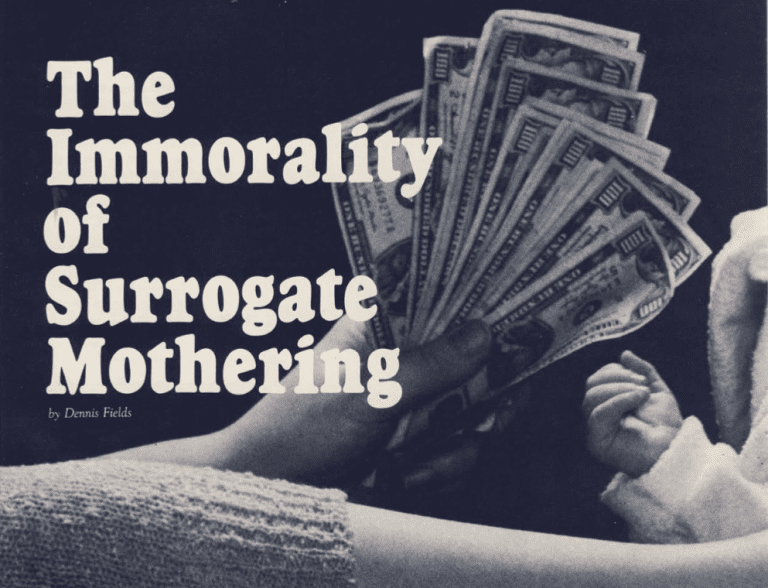In 2008, when Obama was running for president, Focus on the Family put out a sixteen page document called “Letter from 2012 in Obama’s America.” In 2012, I revisited this letter. Today, in 2016, it’s time I returned to it again.
The letter begins like this:
What will the United States be like if Senator Obama is elected? The most reliable way of predicting people’s future actions is by looking at their past actions. Jesus himself taught, “You will recognize them by their fruits” (Matthew 7:16). Anyone who has hired employees knows that – the best predictor of a person’s future job performance is not what he tells you he can do but what he has actually done in the past.
So here is a picture of the changes that are likely or at least very possible if Senator Obama is elected and the far-Left segments of the Democratic Party gain control of the White House, the Congress, and perhaps then the Supreme Court. The entire letter is written as a “What if?” exercise, but that does not make it empty speculation, because every future “event” described here is based on established legal and political trends that can be abundantly documented and that only need a “tipping point” such as the election of Senator Obama and a Democratic House and Senate to begin to put them into place.
Obama did have a Democratic House and Senate, though he lost both in the 2014 midterm election. Let’s take a look at the letter’s predictions.
Gay Rights
The first ten items deal with gay rights, focusing especially on same-sex marriage. The predictions here are a mixture of things that have happened or should happen, and things that have not happened and almost certainly will not happen. A few of the issues examined are boundary-line issues, points that involve gray areas and are still being hashed out today.
(1) Boy Scouts: “The land of the free”? The Boy Scouts no longer exist as an organization. They chose to disband rather than be forced to obey the Supreme Court decision that they would have to hire homosexual scoutmasters and allow them to sleep in tents with young boys. (This was to be expected with a change in the court, since the 2000 decision Boy Scouts of America v. Dale, which affirmed the right of the Boy Scouts as a private organization to dismiss a homosexual scoutmaster, was a 5-4 decision, with Stevens, Ginsburg, Souter and Breyer dissenting even then.)
It had become increasingly difficult for the Boy Scouts to find meeting places anyway, because in 2009 Congress passed and President Obama signed an expansion of the Civil Rights Act of 1964, which extended federal civil rights protections to people engaging in homosexual behavior. So the Boy Scouts had already been kicked out of all public facilities.
The Boy Scouts still exists. The organization decided voluntarily to allow troops to hire gay scoutmasters (but not to require them to do so). There was no Supreme Court decision that forced them to do this, and they did not choose to disband.
Boy Scouts has not had any trouble finding meeting places, though some churches have banned them. Obama has not expanded the Civil Rights Act of 1964 to include gay, lesbian, and bisexual individuals, though he has endorsed legislation that would do so. The Equal Employment Opportunity Commission did rule that the Civil Rights Act’s ban on sex discrimination extended to sexual orientation, but the Supreme Court ruled that churches are not bound by federal non-discrimination requirements, except for fully secular employees such as janitors.
So, no, this did not happen.
(2) Elementary schools: “The land of the free”? Elementary schools now include compulsory training in varieties of gender identity in Grade 1, including the goodness of homosexuality as one possible personal choice. Many parents tried to “opt out” their children from such sessions, but the courts have ruled they cannot do this, noting that education experts in the government have decided that such training is essential to children’s psychological health.
Many Christian teachers objected to teaching first-graders that homosexual behavior was morally neutral and equal to heterosexuality. . . . But state after state ruled that their refusal to teach positively about homosexuality was the equivalent of hate speech, and they had to teach it or be fired. Tens of thousands of Christian teachers either quit or were fired, and there are hardly any evangelical teachers in public schools any more.
. . . In addition, many private Christian schools decided to shut down after the Supreme Court ruled that anti-discrimination laws that include sexual orientation extended to private institutions such as schools, and that private schools also had to obey the law and teach that homosexuality and heterosexuality are both morally good choices.
None of that has happened. None.
An increasing number of public schools do teach students about sexual orientations and gender identities, but I have heard nothing about mass teacher resignations. It is schools’ job to teach children about the diversity of the world in which they live. Yes, evangelicals see teaching children about sexual orientations in an accepting way as a challenge to their religious beliefs, and public school programs on gender and sexuality should acknowledge that some religious groups oppose specific orientations or identities. The point is not indoctrinating, but rather providing accurate information.
Consider young earth creationism. Because evangelicals cannot teach their religion in the classroom, they tried moving arguments for “creation science” or “intelligent design” into the classroom. However, the science behind these concepts is severely lacking (to say the least), while the science pointing to evolution is sound. The same is true here as well. Evangelicals cannot teach Leviticus in the classroom, so they’ve tended to argue that the “homosexual lifestyle” has medical or psychological consequences or that children of same-sex unions suffer. The problem is that none of this is true, and schools are supposed to teach information that is accurate.
What about the last point? Given that private Christian schools are still allowed to teach racism to their students if they so choose, suggesting that they’ll be banned from teaching Leviticus is not rational. As I’ve explained before, Christian schools have in the past gotten in trouble for racial discrimination in admissions, but not for racist teaching. What about Christian colleges and universities? Some such schools refuse to receive federal funding in the form of student aid, thus avoiding federal nondiscrimination regulations. Others schools that do take government funding have nonetheless applied for and been granted exemptions from these requirements, specifically so that they can discriminate against LGBT students and women. And all of this has been about enrollment and treatment, not curriculum content.
(3) Adoption agencies: “The land of the free”? There are no more Roman Catholic or evangelical Protestant adoption agencies in the United States. Following earlier rulings in New York and Massachusetts, the U.S. Supreme Court in 2011 ruled that these agencies had to agree to place children with homosexual couples or lose their licenses. Just as the Catholic Charities adoption agency had closed down for this reason in Massachusetts in 2006, so all similar agencies across the United States have now closed down rather than violate their consciences about the moral wrong of homosexual behavior.
Christian parents seeking to adopt have tried going through secular adoption agencies, but they are increasingly excluding parents with “narrow” or dangerous views on religion or homosexuality.
Actually, this still hasn’t been worked out, and same-sex couples are subject to a patchwork of adoption requirements. Catholic Charities ceased operating in Illinois, but they appear to still be operating everywhere else. Also? Their whole “land of the free” thing seems a bit backwards. One would think that the freedom to adopt without being discriminated against would matter. And while the letter predicts that Christian parents will have trouble adopting, it’s still same-sex couples who are having the problems—some have had foster children they had hoped to adopt taken from them and placed with opposite-sex couples because of their sexual orientation. So, yeah. No. Did not happen.
(4) Businesses with government contracts: “The land of the free”? All businesses that have government contracts at the national, state or local level now have to provide documentation of equal benefits for same-sex couples. This was needed to overcome “systemic discrimination” against them and followed on a national level the pattern of policies already in place in San Francisco, Los Angeles and Seattle.
Let’s cut to the chase here—the Supreme Court made same-sex marriage the law of the land in 2015. That means that same-sex couples do have access to spousal benefits, if they are married. However, companies may still fire employees for being gay in most states. I also don’t think companies have to provide special documentation on this. I’m going to be generous, though, and say that this one partly happened.
(5) Public broadcasting: “The land of the free”? The Bible can no longer be freely preached over radio or television stations when the subject matter includes such “offensive” doctrines as criticizing homosexual behavior. The Supreme Court agreed that these could be kept off the air as prohibited “hate speech” that is likely to incite violence and discrimination. These policies followed broadcasting and print restrictions that were in place prior to 2008 in Canada and Sweden.
Hahahahahahah nope, didn’t happen.
(6) Doctors and lawyers: “The land of the free”? Physicians who refuse to provide artificial insemination for lesbian couples now face significant fines or loss of their license to practice medicine, following the reasoning of a decision of the California Supreme Court in North Coast Women’s Care Medical Group v. Superior Court of San Diego County (Benitez), which was announced August 18, 2008. As a result, many Christian physicians have retired or left the practices of family medicine and obstetrics & gynecology. Lawyers who refuse to handle adoption cases for same-sex couples similarly now lose their licenses to practice law.
I have questions. Does Focus on the Family, which put out this letter, want doctors to be able to refuse to artificially inseminate divorced or single women too? What if someone wanted to refuse to artificially inseminate Christian women, on the grounds that raising a child in a religious home is child abuse? Where do we stop? Do doctors interview women to determine whether they should be allowed to be mothers before artificially inseminating them? The above predictions didn’t happen, that I can find, but they probably should.
(7) Counselors and social workers: “The land of the free”? All other professionals who are licensed by individual states are also prohibited from discriminating against homosexuals. Social workers and counselors, even counselors in church staff positions, who refuse to provide “professional, appropriately nurturing marriage counseling” for homosexual couples lose their counseling licenses. Thousands of Christians have left these professions as a result.
Some universities have refused counseling degrees to students who refused to counsel gay couples. To put it another way, at some universities, learning how to counsel gay couples and gaining experience with counseling gay couples is now a prerequisite for obtaining a degree in counseling. However, that isn’t a blanket requirement at all universities, and at least one state has passed a law explicitly permitting counselors and therapists to refuse to serve LGBT individuals.
So, no, this did not happen.
(8) Homosexual weddings: “The land of the free”? Church buildings are now considered a “public accommodation” by the Supreme Court, and churches have no freedom to refuse to allow their buildings to be used for wedding ceremonies for homosexual couples. If they refuse, they lose their tax-exempt status, and they are increasingly becoming subject to fines and anti- discrimination lawsuits.
Nope. Did not happen.
(9) Homosexual church staff members: “The land of the free”? While churches are still free to turn down homosexual applicants for the job of senior pastor, churches and parachurch organizations are no longer free to reject homosexual applicants for staff positions such as part-time youth pastor or director of counseling. Those that have rejected homosexual applicants have had their tax-exempt status revoked, and now the Equal Employment Opportunity Commission has begun to impose heavy fines for each instance of such “discrimination,” which, they say, is “contrary to the U.S. Constitution as defined by the Supreme Court.” These fines follow the pattern of a precedent-setting case in February 2008, in which the Diocese of Hereford in the Church of England was fined $94,000 (47,000 UK pounds) for turning down a homosexual applicant for a youth ministry position.
Actually, the opposite is true. Churches are only required to follow non-discrimination laws for secular positions such as janitor. And yes, this is something the Supreme Court decided.
(10) Homosexuals in the military: One change regarding the status of homosexuals did not wait for any Supreme Court decision. In the first week after his inauguration, President Obama invited homosexual rights leaders from around the United States to join him at the White House as he signed an executive order directing all branches of the military to abandon their “don’t ask, don’t tell” policy and to start actively recruiting homosexuals. As a result, homosexuals are now given special bonuses for enlisting in military service (to attempt to compensate for past discrimination), and all new recruits, and all active-duty and reserve personnel, are compelled to take many hours of “sensitivity training” to ensure they demonstrate positive attitudes toward those with different sexual orientations and practices. Any one who seems hesitant or who objects is routinely passed over for promotion. In addition, any chaplain who holds to an interpretation of Scripture that homosexual conduct is morally wrong and therefore does not espouse “mainstream values,” is dismissed from the military. This is not “the land of the free” for them.
Yes, “don’t as, don’t tell” was repealed. Gay recruits do not, to my knowledge, get special bonuses. I also have not heard of military members being passed over for promotion based on their views, or of chaplains being dismissed. We’re going to rate this one as partly happened.
Religion in the Public Square
The next four items deal with religious speech in the public square.
(11) High schools: “The land of the free”? High schools are no longer free to allow “See You at the Pole” meetings where students pray together, or any student Bible studies even before or after school. The Supreme Court ruled this is considered speech that is both “proselytizing” and involves “worship,” special categories of speech which, as liberal Justice John Paul Stevens argued in his dissent in Good News Club v. Milford Central School (2001), should not be allowed in public schools, since it is in a different category from other kinds of speech. (Justice Souter filed a similar dissent, which Justice Ginsburg joined). The new 6-3 liberal majority on the Supreme Court followed his reasoning and outlawed any use of school property for any kind of religious meeting, even outside of normal school hours. In addition, Christian students cannot raise religious objections to curriculum material that promotes homosexual behavior.
Did not happen.
(12) Church use of school property: “The land of the free”? Tens of thousands of young churches suddenly had no place to meet when the Supreme Court ruled that public schools in all 50 states had to stop allowing churches to rent their facilities — even on Sundays, when school was not in session. The court said this was an unconstitutional use of government property for a religious purpose. Most of these churches have been unable to find any suitable place to meet. Public libraries and public parks are similarly excluded from allowing churches to use their facilities. Once again, the reasoning of liberal Justices Stevens, Souter, and Ginsburg in 2001 in Good News Club (see above) was able to garner 6-3 support with the new court.
Did not happen.
(13) Campus ministries: “The land of the free”? Campus organizations such as Campus Crusade for Christ, InterVarsity, Navigators, Baptist Campus Ministry, and Reformed University Fellowship have shrunk to skeleton organizations, and in many states they have ceased to exist.
After the Supreme Court ruled that “proselytizing” speech and “worship” speech did not have the same First Amendment protection as other speech, and after it declared same-sex “marriage” to be the law of the United States, a subsequent Supreme Court decision predictably ruled that universities had to prohibit campus organizations that promote “hate speech” and have discriminatory policies. Therefore these Christian ministries have been prohibited from use of campus buildings, campus bulletin boards, advertising in campus newspapers, and use of dormitory rooms or common rooms for Bible studies.
This has not happened.
In 2014, Campus Crusade for Christ and InterVarsity were briefly de-recognized by the California State University system because the groups refused to sign a state-mandated nondiscrimination policy pledging to allow any individual, regardless of religion or sexual orientation, to run for leadership positions. Both groups were still allowed on campus and permitted to meet in rooms on campus, and what the groups taught was never at issue. In 2015, the dispute was settled when both groups agreed to sign the policy. Neither had to change their stance on homosexuality to do so.
(14) Pledge of Allegiance: “The land of the free”? Public school teachers are no longer free to lead students in the Pledge of Allegiance to the flag of the United States. The 9th Circuit U. S. Court of Appeals heard a new challenge to the phrase “under God” in the Pledge, and, as it had in 2002 in Newdow v. United States Congress, Elk Grove Unified School District, et al., it held the wording to be unconstitutional. Now the Supreme Court has upheld this decision.
HahahahahahahaHAHAHAHAHA nope. NOPE. Did not happen.
In actual fact, students who choose not to say the pledge of allegiance still face censure across the country, and if you’re an athlete and you don’t stand for the national anthem, people get hella angry.
Abortion
Three questions deal with abortion.
(15) Freedom of Choice Act: Congress lost no time in solidifying abortion rights under President Obama. In fact, Obama had promised, “The first thing I’ll do as president is sign the Freedom of Choice Act” (July 17, 2007, speech to the Planned Parenthood Action Fund).
This federal law immediately nullified hundreds of state laws that had created even the slightest barrier to abortion. States can no longer require parental involvement for minors who wish to have an abortion, waiting period, informed consent rules, restrictions on tax-payer funding or restrictions on late-term abortions. The act reversed the Hyde Amendment, so the government now funds Medicaid abortions for any reason. As a result, the number of abortions has increased dramatically. The Freedom of Choice Act also reversed the Partial Birth Abortion Ban Act of 2003, so infants can be killed outright just seconds before they would be born. States whose laws were overturned challenged the law in court but it was upheld by the Obama Supreme Court. “The land of the free”? There is no freedom for these infants who are killed by the millions.
Not only did this not happen, but the years since 2008 have been a time of unprecedented anti-aboriton legislation, as states across the country have passed literally hundreds of laws restricting the practice. This summer, the Supreme Court finally pushed these laws back slightly, ruling against some completely egregious restrictions that were transparently designed to make abortions harder to obtain, but even that ruling did not nullify any state law “that had created even the slightest barrier to abortion.”
(16) Nurses and abortions: “The land of the free”? Nurses are no longer free to refuse to participate in abortions for reasons of conscience. If they refuse to participate, they lose their jobs, for they are now failing to comply with federal law. Many Christian nurses have left the health care field rather than violate their consciences. A number of Christian nurses challenged their loss of jobs in court, but the Supreme Court ruled that medical professionals do not have the freedom to refuse nonessential, elective care on the basis of conscience. In its decision, the Supreme Court followed the reasoning of the California Supreme Court in the 2008 Benitez case (see section (6) above).
Did not happen.
(17) Doctors and abortions: “The land of the free”? The same restrictions apply to doctors: Doctors who refuse to perform abortions can no longer be licensed to deliver babies at hospitals in any state. As a result, many Christian doctors have left family medicine and obstetrics, and many have retired.
Did not happen.
Pornography and Gun Rights
There are only one item each on pornography and gun rights.
18) Pornography: “The land of the free”? It’s almost impossible to keep children from seeing pornography. The Supreme Court in 2011 nullified all Federal Communications Commission restrictions on obscene speech or visual content in radio and television broadcasts. As a result, television programs at all hours of the day contain explicit portrayals of sexual acts. The court applied more broadly the “Miller test” from the 1973 decision in Miller v. California, by which a work could not be found obscene unless “the work, taken as a whole, lacks serious literary, artistic, political, and scientific value.” In the 2011 decision, the court essentially found that any pornographic work had some measure of “serious artistic value,” at least according to some observers, and thus any censorship of pornographic material was an unconstitutional restriction on the First Amendment. In addition, all city and county laws restricting pornography were struck down by this decision. As a result, pornographic magazines are openly displayed in gas stations, grocery stores and on newsstands (as they have been in some European countries for several years).
OMG, did not happen.
(19) Guns: “The land of the free”? It is illegal for private citizens to own guns for self- defense in eight states, and the number is growing with increasing Democratic control of state legislatures and governorships. This was the result of a 6-3 Supreme Court decision in which the court reversed its 5-4 decision that had upheld private gun ownership in District of Columbia v. Heller (2008). In the new decision, a response to test cases from Oregon, Massachusetts, and Vermont, the court adopted the view of the Second Amendment that had been defended in Heller by the four liberal justices, Stevens, Souter, Ginsburg and Breyer.
In this new decision, the court specified that “the right of the people to keep and bear arms” was limited to that purpose specified in the Second Amendment, namely, to those people who were part of a “well regulated militia” in the various states. To those who argued that this view was not the “original intent” of the framers, they pointed to a long history of dispute over the interpretation of the expression and then said that, in any case, the Constitution was an “evolving” document that must change with the times, and so what may have been applicable in 1790 need no longer be decisive. Therefore they allowed cities and states to limit gun ownership to active-duty military personnel and police officers. Citizens in those areas who are discovered owning guns have been subjected to heavy fines and imprisonment. Inner-city violent crime has increased dramatically.
Once again, the opposite happened. Also, I don’t think the author of this letter understands how the Supreme Court works. It is extremely rare for the Supreme Court to simply overturn a previous decision, and if that does happen it generally happens substantially later, not in the following decade. The idea that the Supreme Court would point-blank reverse District of Columbia v. Heller (2008) by 2012 is historical fantasy. Instead, since 2008 an increasing number of states have legalized concealed or open carry of weapons, sometimes eliminating the need for a permit.
Education
There’s only one item on education.
(20) Home schooling: “The land of the free”? Parents’ freedom to teach their children at home has been severely restricted. The Supreme Court, to the delight of the National Education Association, followed the legal reasoning of a February 28, 2008, ruling in Re: Rachel L by the 2nd District Court of Appeal in California (although that ruling was later reversed). In the later case, the Supreme Court declared that home schooling was a violation of state educational requirements except in cases where the parents (a) had an education certificate from an accredited state program., (b) agreed to use state-approved textbooks in all courses, and (c) agreed not to teach their children that homosexual conduct is wrong, or that Jesus is the only way to God, since these ideas have been found to hinder students’ social adjustment and acceptance of other lifestyles and beliefs, and to run counter to the state’s interest in educating its children to be good citizens. Parents found in violation of this ruling have been subject to prosecutions for truancy violation, resulting in heavy fines and eventual removal of their children from the home. Thousands of home schooling parents, seeing no alternative in the United States, have begun to emigrate to other countries, particularly Australia and New Zealand, where home schooling is still quite prevalent.
The author does not understand In re. Rachel L. In that decision, the court simply stated that California did not appear to have a homeschooling statute, which indeed it did not. If the courts had not found a way to allow homeschooling under another statute, the legislature would almost certainly have created an explicit homeschool statue. In other words, the issue was whether homeschooling could take place under existing statutes or whether the legislature needed to create a specific statute for homeschooling. What parents taught about homosexuality, whether they used state-approved textbooks, and whether they had education certificates was not an issue in this case.
Homeschooling has become widespread enough and widely accepted enough that the Supreme Court scenario laid out above is nothing more than a fantasy. At most, courts may someday rule that homeschooling parents must show verification that they are educating their children, in the form of test scores or student portfolios, something only a few states require parents to do today. But this has not happened. Since 2008, at least half a dozen states have loosened their homeschooling requirements, in some cases eliminating them altogether.
Military Policy
There are five items on foreign policy.
(21) Iraq: “The home of the brave”? President Obama fulfilled his campaign promise and began regular withdrawal of U.S. troops from Iraq, completing it in the promised 16 months, by April 2010. All was peaceful during those months, but then in May 2010, Al-Qaida operatives from Syria and Iran poured into Iraq and completely overwhelmed the Iraqi security forces. A Taliban-like oppression has taken over in Iraq, and hundreds of thousands of “American sympathizers” have been labeled as traitors, imprisoned, tortured, and killed. The number put to death may soon reach the millions.
Al-Qaida leaders have been emboldened by what they are calling the American “defeat” and their ranks are swelling in dozens of countries.
It would be tempting to find this one true, given the emergence of ISIS, but as numerous reporters have pointed out, ISIS is primarily the result of failures in the new Iraqi government rather than of the removal of American forces from that country. Still, you could argue that Obama has not done enough to stop ISIS (or hasn’t happened on the magic formula that would do so). So we’ll give this one partly true.
(22) Terrorist attacks: “The home of the brave”? President Obama directed U.S. intelligence services to cease all wiretapping of alleged terrorist phone calls unless they first obtained a warrant for each case. Terrorists captured overseas, instead of being tried in military tribunals, are given full trials in the U.S. court system, and they have to be allowed access to a number of government secrets to prepare their defense.
Since 2009, terrorist bombs have exploded in two large and two small U.S. cities, killing hundreds, and the entire country is fearful, for no place seems safe. President Obama in each case has vowed “to pursue and arrest and prosecute those responsible,” but no arrests have been made. However, he has challenged the nation to increase foreign aid to the poorer nations that were the breeding grounds for terrorism, so people could have an opportunity to escape from the cycles of poverty and violence in which generations had been trapped.
Nope. Wiretapping still happens, and the idea that terrorists would need to be given access to government secrets to prepare their defense is pure fantasy. Obama never shut Guantanamo, though he initially said he would. There have been several terrorist attacks, yes, but none that have killed hundreds, and the largest attack targeted the same group this letter targets heavily in its first ten points—the gays. These attacks have nearly universally been carried out by lone wolfs, not by Al Qaeda or any other official group. Arrests have been made in each case (or the perpetrators have been killed), and anyone who feels like no place is safe is terrible at risk assessment.
(23) Russia: “The home of the brave”? As Vice President Joe Biden had predicted on Oct. 20, 2008, some hostile foreign countries “tested” President Obama in his first few months in office. The first test came from Russia. In early 2009, they followed the pattern they had begun in Georgia in 2008 and sent troops to occupy and re-take several Eastern European countries, starting with the Ukraine, Estonia, Latvia and Lithuania. President Obama appealed to the United Nations (UN), taking the same approach he had in his initial statements when Russia invaded Georgia in August 2008: “Now is the time for Georgia and Russia to show restraint, and to avoid an escalation to full scale war,” and “All sides should enter into direct talks on behalf of stability in Georgia, and the United States, the United Nations Security Council, and the international community should fully support a peaceful resolution to this crisis.” But Russia sits on the Security Council, and no U.N. action has yet been taken.
Then in the next three years, Russia occupied additional countries that had been previous Soviet satellite nations, including Poland, Hungary, the Czech Republic and Bulgaria, with no military response from the U.S. or the U.N. NATO heads of state have severely condemned Russia’s actions each time but they could never reach consensus on military action. Liberal television commentators in both the U.S. and Europe have uniformly expressed deep regret at the loss of freedom of these countries but have also observed that “the U.S. cannot be the world’s policeman.”
Um, guys? All of those countries except for the Ukraine are in NATO. If Russia had actually invaded Poland, Hungary, the Czech Republic, or Bulgaria, that would have triggered immediate military action by NATO. Period. The only reason Russia’s been able to get away with invading and annexing Ukraine’s Crimean Peninsula is that the Ukraine is not in NATO, and even then, I suspect there would have been military action if Russia had gone further. I’m again going to be generous, though, and give this a partly happened rating.
But you know what? The 2016 Republican presidential nominee seems to really really really like and admire Vladimir Putin, so I’ll let you chew on that.
(24) Latin America: President Obama has also moved to deepen U.S. ties and U.S. trade with communist regimes in Cuba, Venezuela and Bolivia, regimes that had long enjoyed the favor of far-Left factions in the Democratic Party. Several other Latin American countries seem ready to succumb to insurgent communist revolutionary factions funded and armed by millions of petrodollars from Hugo Chavez in Venezuela.
Obama normalized relations with Cuba, yes. However, not only have the insurgent communist revolutions not happened, some Latin American nations have experienced right-wing coups. As for Venezuela, the country has been run into the ground and its communist government will likely be replaced within the next few years. I’m not going to give this a partly, because in my eyes Latin America’s overall rightward shift balances out the normalization of relations with Cuba.
(25) Israel: “The home of the brave”? In mid-2010, Iran launched a nuclear bomb that exploded in the middle of Tel Aviv, destroying much of that city. They then demanded that Israel cede huge amounts of territory to the Palestinians, and after an anguished all-night Cabinet meeting, Israel’s prime minister agreed. Israel is reduced to a much smaller country, hardly able to defend itself, and its future remains uncertain. President Obama said he abhorred what Iran had done and he hoped the U.N. would unanimously condemn this crime against humanity. He also declared that the U.S. would be part of any international peacekeeping force if authorized by the U.N., but the Muslim nations in the U.N. have so far prevented any action.
None. Did not happen. Also, I’m pretty sure that if Iran did nuke an Israeli city, Israel would respond by nuking much of Iran, not by rolling over. Instead, we saw a new nuclear deal with Iran which many hope will successfully prevent the country from developing a nuclear weapon.
Health Care
There are two items on healthcare.
(26) Health care systems: The new Congress under President Obama passed a nationalized “single provider” health care system, in which the U.S. government is the provider of all health care in the United States, following the pattern of nationalized medicine in the United Kingdom and Canada. The great benefit is that medical care is now free for everyone — if you can get it. Now that health care is free, it seems everybody wants more of it. The waiting list for prostate cancer surgery is 3 years. The waiting list for ovarian cancer is 2 years. Just as the Canadian experience had shown prior to 2008 with its nationalized health care, so in the U.S. only a small number of MRIs are performed — down 90% from 2008 — because they are too expensive, and they discover more problems that need treatment, so they are almost never authorized.
Did not happen. The legislation Obama did pass created a guaranteed market for insurance companies, a far cry from nationalization. Also? Part of the reason healthcare is so expensive in the U.S. is that doctors arguably order too many tests. It’s possible that healthcare professionals in Canada should be performing more MRIs—that’s not a subject I have the familiarity to speak to—but the goal is not more of all the tests but rather balance.
(27) Limited care for older Americans: “The land of the free”? Because medical resources must be rationed carefully by the government, people older than 80 have essentially no access to hospitals or surgical procedures. Their “duty” is increasingly thought to be to go home to die, so they don’t drain scarce resources from the medical system. Euthanasia is becoming more and more common.
Um NO. Did not happen, will not happen. I mean good god, this does not even happen in countries that do have nationalized medicine! I mean we’re clear that developed countries with nationalized healthcare essentially all have higher life expectancies than the U.S., yes?
Taxes, Economy, and the Poor
This section has four items.
(28) Taxes: Tax rates have gone up on personal income, dividends, capital gains, corporations, and inheritance transfers. The amount of income subject to Social Security tax has nearly doubled. The effect on the economy has been devastating. We have experienced a prolonged recession. Everyone has been hurt by this, but the poor have been hurt most. In dozens of cities, there are no jobs to be found.
It turns out that the people President Obama called “the rich” were not all that rich. They were just ordinary people who worked hard, saved, and built small businesses that provided jobs and brought economic growth. They kept inventing new and better ways to produce things and bring prices down. They produced the goods and services that gave us the highest standard of living in history. They provided the competition that kept prices low. And the top 50% of earners were already paying 97% of income taxes collected by the U.S. government in 2006.
Oh goodness so many problems here. For one, taxes on “the rich” were much higher in the 1950s, and we did just fine in terms of economy and job growth. For another, we’ve already tried “trickle down” economics where we cut taxes on the rich under the assumption that they’ll use the money they save to create jobs, and it hasn’t worked. There’s so much misinformation and confusion out there about what our tax structure does, would, or could look like that it would be comical if it weren’t so very serious.
So, did the prediction happen? No. Obama raised taxes slightly on those making over $400,000 a year, keeping rates well below the tax rates of the Clinton era. The amount of income subject to Social Security tax has not doubled. It has gone from 102K to 118K, an increase far less steep than that under Bush (who increased it from 76K to 102K). There is nothing to suggest that these very slight tax increases have devastated our economy.
What about jobs? There was an immediate job loss as a recession hit simultaneously with Obama’s election. Obama has spent his two terms working to bring the country out of this recession, and has succeeded. Job growth was stagnant under Bush. Not so under Obama.
(29) Budget deficit: The federal budget deficit has increased dramatically under President Obama, in spite of higher tax rates. Increasing tax rates on “the rich” did nothing to reduce the deficit because the economy shrank so much with reduced investment that the total dollars collected in taxes actually decreased — even though most people’s tax rate is now higher. As numerous economists had predicted, higher tax rates meant that the government took in less money. When reporters asked Obama why he still favored higher taxes on the rich when it brought in no more money, he replied that it was important that the rich pay their fair share.
Sigh. This is one of those that is sort of right, but for the wrong reason. Budget deficits were unprecedentedly highduring Obama’s first term. They have come down since then, but the reason for the high deficits was the recession, not changes in tax rates. Look, increasing taxes on the rich does not de facto cause the economy to shrink. Decreasing taxes on the rich does not de facto cause the economy to grow. I get that these are huge conservative talking points, but guys, the world is not that simple.
FYI, the federal budget deficit increased dramatically under Bush. Bush inherited a budget surplus and left the country with a budget deficit. Obama inherited a recession, and then brought the deficit down to where Bush left it. In fact, the 2009 deficit had already been decided when Obama took office—decided under Bush—and has decreased each year from there.
(30) Union organizing: “The land of the free”? In 2009, Congress passed and President Obama quickly signed a “card check” program that nullified the requirement for secret ballots when voting on whether workers wanted a union shop. Now the union has to get signatures from a majority of workers in any business, and unions around the country are using strong-arm tactics to intimidate anyone who stands in their way. Several industries are completely unionized, and prices of goods produced by those industries have shot up as a result.
Did not happen.
(31) Energy: World demand for oil continues to climb, and prices keep going up, but President Obama for four years has refused to allow additional drilling for oil in the United States or offshore. Gas costs more than $7 per gallon, and many Democrats openly applaud this, since high prices reduce oil consumption and thus reduce carbon dioxide output. But working Americans are hit hard by these costs.
Nuclear energy would provide a substitute for oil in some cases, and could generate electricity to power electric cars, but environmentalist legal challenges have prevented the construction of nuclear plants, and the courts have been leaning so far in a pro-environmentalist direction that nobody expects the construction of nuclear plants for several decades, if ever. Obama keeps reminding people we cannot guarantee it will be safe.
As for coal, President Obama directed the Environmental Protection Agency to implement strict new carbon emission standards that drove many coal-powered electric plants out of business. The country has less total electric power available than in 2008, and periodic blackouts to conserve energy occur on a regular schedule throughout the nation. The price of electricity has tripled in places like California, which also faces rolling blackouts during peak energy periods. The impact on our economy, and our homes, has been devastating.
Ha. First, Obama allowed for loads more oil drilling. Second, Obama is actually pro-nuclear, and has approved new nuclear power plants and created rulings friendly to nuclear power. Coal plants are shutting down, yes, but that’s at least partly because they’re old and because demand for them is decreasing.
The price of electricity in California increased from 12.48 cents per kilowatt to 15.15 cents per kilowatt, and no, there have not been rolling blackouts (or periodic blackouts resulting from energy shortages).
And look at this fascinating graph. We have not lost ground in total electric power available. Instead, the sources have simply shifted.
Talk Radio, Christian Publishers, and Prosecution
These are the last three items in the letter.
(32) Fairness Doctrine: “The land of the free”? By the summer of 2009, the five-member FCC was controlled by Democratic appointees – including a chairman appointed by President Obama. The “Fairness Doctrine” became a topic of FCC consideration following pressure from Democratic congressional leaders who initially did not have sufficient votes to pass the measure. The FCC quickly implemented the “Fairness Doctrine,” which requires that radio stations provide “equal time” for alternative views on political or policy issues.
As a result, all radio stations have to provide equal time to contrasting views for every political or policy-related program they broadcast by talk show hosts like Rush Limbaugh, Laura Ingraham, Sean Hannity, Dennis Prager, Janet Parshall, Michael Medved and Hugh Hewitt, and broadcasters like Dr. James Dobson. Every conservative talk show is followed by an instant rebuttal to the program by a liberal “watchdog” group. Many listeners gave up in frustration, advertising (and donation) revenues dropped dramatically, and nearly all conservative stations have gone out of business or switched to alternative formats such as country or gospel or other music. Conservative talk radio, for all intents and purposes, was shut down by the end of 2010.
In order to solidify the Fairness Doctrine at the FCC, Congress in 2010 passed, and President Obama signed, legislation making it permanent. Many legal scholars had predicted the Fairness Doctrine would be declared unconstitutional by the Supreme Court. But the liberal Obama court upheld it easily. Of course, this bill fit the deeper purpose of the liberal-Left wing of American politics, which trumps all other purposes, and that is getting and increasing its power so as to impose its agenda on the nation. It was not surprising the liberal Supreme Court went along.
Did not even begin to happen.
(33) Christian books: After the Supreme Court legalized same “sex marriage,” homosexual-activist groups targeted three large Christian book publishers that had publications arguing that homosexual conduct was wrong based on the teachings of the Bible. The activists staged marches and protests at Barnes & Noble stores around the country, demanding the stores remove all books published by these “hate-mongering” publishers. Barnes & Noble resisted for a time, but the protests continued, there was vandalism and secret defacing of books, and eventually the cost was too great and Barnes & Noble gave in. The same thing happened at Borders and other chains. Then they staged a massive nationwide computer attack on Amazon.com, with the same demands, and the same result. As a result, those evangelical publishers could no longer distribute any of their books through any of these bookstore chains. Any Christian publisher that dares to print works critical of homosexual behavior faces the same fate. As a result, several Christian publishers have gone out of business.
This did not happen. Also, Borders went under.
(34) Criminal charges against Republican officials: In his first week in office, Obama followed President Clinton’s precedent and fired all 93 U.S. attorneys, replacing them with his own appointments, including the most active members of the American Civil Liberties Union (ACLU). President Obama argued this was not a selective political action like what President Bush had done, because Obama had fired all of them, conservatives and liberals alike.
The Justice Department soon began to file criminal and civil charges against nearly every Bush administration official who had any involvement with the Iraq war. During his campaign, Senator Obama said, “What I would want to do is to have my Justice Department and my Attorney General immediately review the information that’s already there and to find out are there inquiries that need to be pursued.” In order to facilitate these proceedings, President Obama rescinded President Bush’s executive order that had prevented presidential papers from being released, and millions of pages of previously secret White House papers were posted on the Internet. ACLU attorneys have spent four years poring over these papers looking for possible violations of law. Dozens of Bush officials, from the Cabinet level on down, are in jail, and most of them are also bankrupt from legal costs.
Nope. I can only find one executive official from Bush presidency who was convicted after Obama came to office, and he was only sentenced to two days in jail, and his crime was withholding information from a House Committee. The idea that dozens of Bush officials would be in jail by 2012 speaks to some real paranoia.
Conclusion
So, how close were the predictions? Out of 34 total predictions, five were partly right and one balanced itself out. Which were partly right? Marriage equality, the overturn of Don’t Ask Don’t Tell, the emergence of ISIS, Russia’s invasion of the Ukraine, and the existence of large budget deficits. The reason these are partly right, and not wholly right, is because in each case the Focus on the Family letter predicted these things would lead to the wholesale expulsion of Christians or made other such outrageous predictions alongside the parts that actually did happen, or got the causality completely wrong.
Remember that the Focus on the Family letter predicted that pastors would be jailed for speaking against homosexuality, Christian publishing companies would be shuttered, that Christian doctors, nurses, and teachers would be fleeing their fields and that homeschooling families would be leaving the country in droves. Widespread energy shortages, a downward economic spiral, terrorist attacks that kill hundreds. Guns banned, the Pledge of Allegiance struck down, seniors put out to pasture to die.
I’ll repeat the point I made four years ago:
It’s like all those times Christian leaders have predicted Jesus’ return. You can only predict it and then have it not happen so many times before you lose all credibility whatsoever. It’s as if the Right is playing a game to see how many times they can predict the destruction of our freedoms before they get called on it. And seriously, it’s about time someone called them on it.
I don’t know about the rest of you, but I grew up in an evangelical home and one thing I frequently heard was that we would know false prophets by their fruit. What does that make Focus on the Family, then?

















